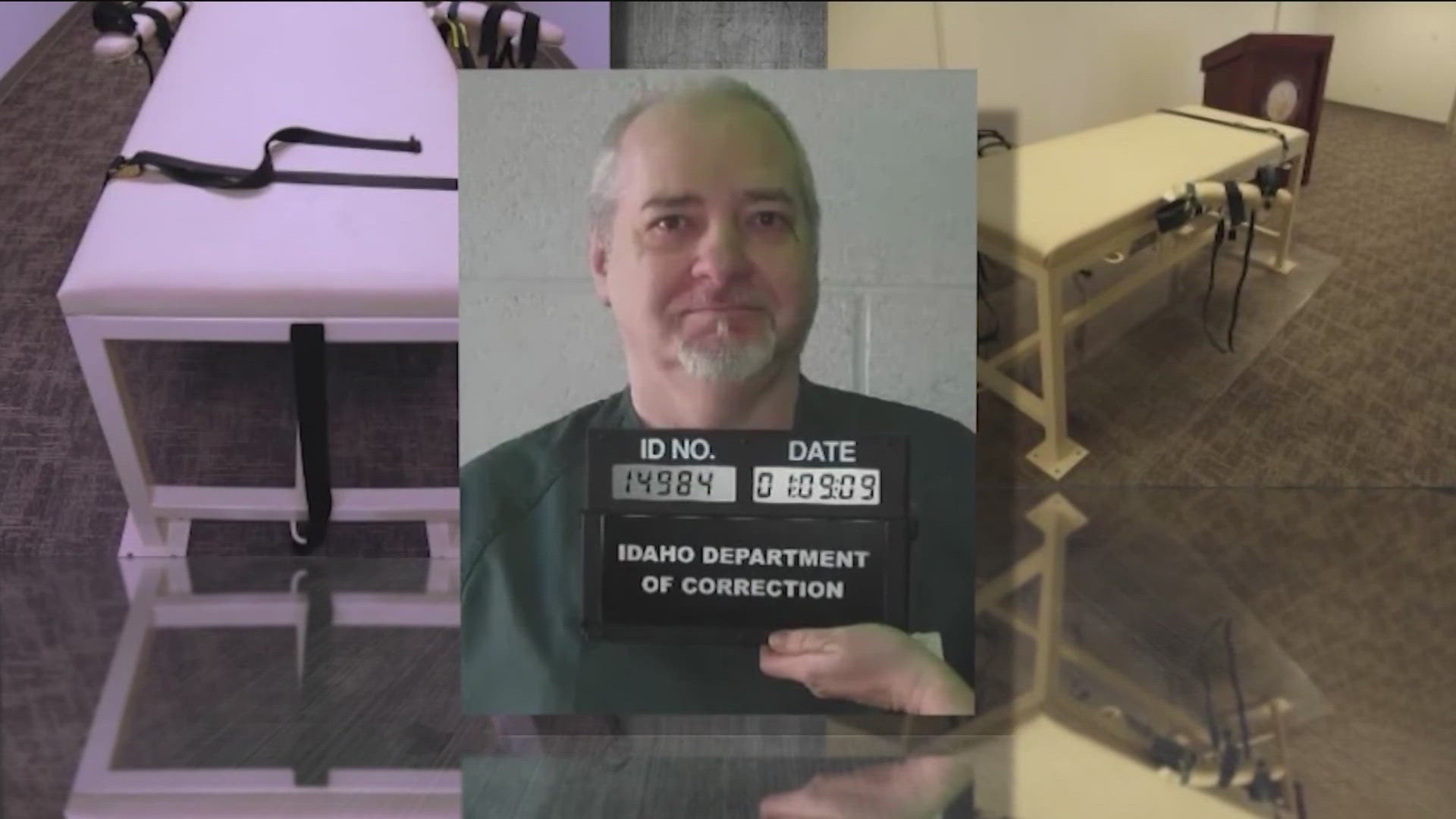BOISE, Idaho — Idaho’s longest-serving death row inmate Thomas Creech will not be executed on Nov. 13 as scheduled. This marks the 13th time his execution has been scheduled.
Creech’s attorneys said putting Creech through another execution attempt, after his first failed execution attempt in February, would be “cruel and unusual punishment.”
“There's not a question about guilt or innocence,” said Robert Dunham, director of the Death Penalty Policy Project. ”But there are questions about whether he received a fair clemency hearing and whether it's appropriate for a state to carry out executions more than once.”
Dunham said that it’s not as uncommon as people think for executions to be paused.
“There's a major public misconception that when a death warrant is issued, it means a prisoner is going to be executed,” Dunham said. “Obviously, that's what a death warrant is intended to do. But in reality, over the last five years, a majority of death warrants have not been carried out.”
In 2024 so far, there have been 50 scheduled executions in the U.S. 21 of those have happened, five have been stayed by courts, 8 have been reprieved, and nine have been vacated. Six are still pending, and only Creech’s attempt has failed.
“It's extraordinarily rare that a state attempts to execute a person twice,” Dunham said.
Creech’s attorneys state he suffers from psychological effects and has PTSD from the near death experience of having Idaho attempt to attach an IV line to him and fail. Staying his execution simply gives the courts more time to hear these arguments before making a final decision, Dunham said.
“That doesn't mean he won't be executed at a later date, so we still have to see how the legal process plays out before we know what the final outcome in the case is going to be,” Dunham said.
Dunham described this as a rare, and new case, noting that Creech's hearings have already been rescheduled multiple times. "These are new issues. These are novel legal issues,” Dunham said. He estimated it could take six months to a year, or possibly longer, before a decision is reached.

